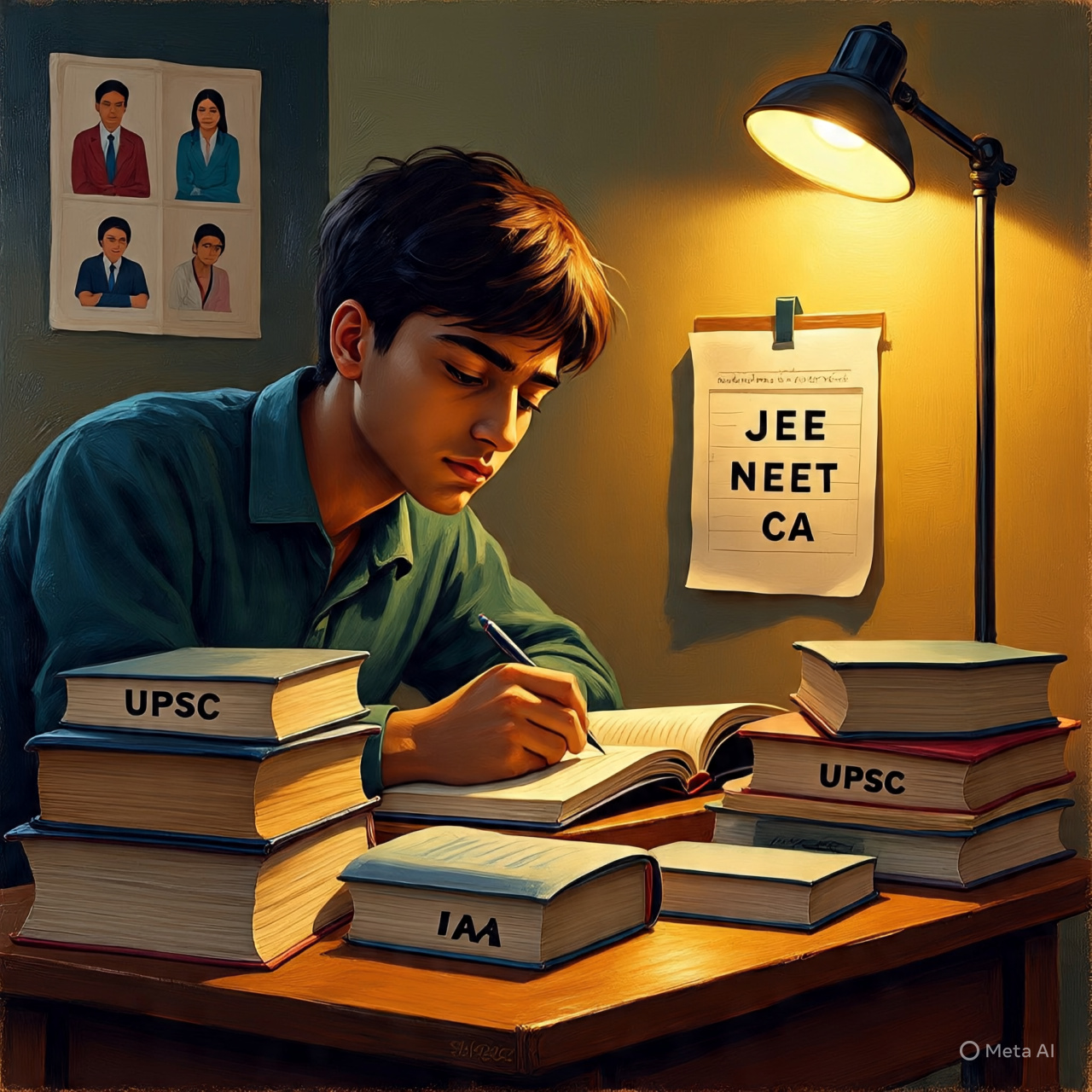Table of Contents
India’s education system is characterized by intense competition, with millions of students annually preparing for life-changing exams. These tests are not merely assessments, but significant challenges that evaluate endurance, knowledge, and mental fortitude. Certain exams are particularly renowned for their difficulty, requiring exceptional effort and resilience. This article aims to delve into the factors that contribute to the toughness of these exams, identify the most formidable ones, and provide strategies for success. Let’s explore what it takes to overcome the most difficult exams in India.
What Makes an Exam “Difficult” in India?
Recognizing what constitutes a challenging exam in India sheds light on why many students face difficulties. It transcends just the questions themselves; multiple aspects amplify the challenge.
Complexity of the Syllabus and Content
Many Indian examinations encompass extensive subjects that necessitate simultaneous mastery of diverse areas. For instance, the UPSC Civil Services exam includes history, geography, and current affairs, while the IIT JEE tests advanced concepts in physics, chemistry, and math, all requiring a profound understanding.
High Competition and Limited Success Rates
Achievement in these exams is infrequent. For example, fewer than 1% of candidates pass the UPSC Civil Services exam at all stages, and only a small percentage of IIT JEE participants advance to the next level, placing immense pressure on students that may adversely affect their mental health.
Rigorous Examination Processes and Evaluation Criteria
Many challenging exams consist of several stages. The UPSC Civil Services process includes preliminary tests, main exams, and interviews, while CA exams incorporate both theoretical and practical components that evaluate different skills. The subjective nature of certain assessments complicates scoring even further.
Extensive Preparation Requirements
Succeeding in these exams often requires years of focused study, the right materials, and guidance from coaching centers. While self-study is common, it necessitates discipline and unwavering motivation.
The Most Difficult Exams in India
Let’s examine the exams considered the most challenging in India, each presenting its unique obstacles and high stakes.
UPSC Civil Services Examination
Often regarded as India’s hardest exam, it aims to select candidates for the IAS, IPS, and IFS. The exam consists of three stages: preliminary, main, and interview, with a success rate of under 1%. Aspirants tackle a vast syllabus that includes history, politics, and current affairs, and many face failure after years of effort. Nevertheless, the success stories of candidates who persevere illustrate the value of determination.
IIT Joint Entrance Examination (JEE)
Renowned for its difficulty, JEE serves as the entry point to India’s premier engineering schools. It is divided into JEE Main and JEE Advanced, with numerous students competing for limited seats in IITs. The questions often require advanced math, physics, and chemistry skills, with only the top percentile gaining admission. Achieving success demands intensive coaching, strategic planning, and extensive practice.
NEET (National Eligibility cum Entrance Test)
This exam determines entry into medical colleges nationwide, covering physics, chemistry, and biology. The immense syllabus volume and competition from countless candidates contribute to its stress-inducing nature, with high scores necessary for admission into top institutions.
CA (Chartered Accountancy) Exam
Well-known for being rigorous, the CA exam comprises Foundation, Intermediate, and Final levels. Candidates must excel in both practical abilities and theoretical knowledge of law. Many take years to pass all levels, and the competitive nature and lower pass rates make success challenging.
GATE (Graduate Aptitude Test in Engineering)
This examination serves as a gateway for master’s programs and research positions in engineering, with questions that assess in-depth technical knowledge and problem-solving abilities. Success typically requires thorough preparation, often in conjunction with coaching classes.
Other Significantly Difficult Exams
- CLAT (Common Law Admission Test): Requires comprehension of law, current affairs, and reasoning.
- CDS (Combined Defence Services): Evaluates general knowledge and physical fitness for defense roles.
- IISER Exams: Challenging science assessments for entrance into esteemed research institutions.
Key Factors Contributing to the Difficulty of These Exams
Several elements combine to make these exams exceptionally tough.
- Extensive Syllabi and Subject Depth: The vast amount of material and depth of knowledge required makes studying demanding.
- Limited Seats and High Competition: The insufficient number of available spots in relation to applicants fosters intense competition.
- High Stakes and Pressure: The significance of passing these exams for future careers creates substantial stress.
- Need for Strategic Preparation and Coaching: Success often hinges on an effective study plan, the right coaching, and suitable resources, as rote memorization falls short.
- Psychological Preparedness and Resilience: Maintaining motivation and composure amid persistent pressure and setbacks is crucial.
Strategies for Conquering These Challenges
While success against these odds can seem daunting, it’s achievable. Here are effective strategies for overcoming these exams:
- Time Management: Develop and adhere to a daily study schedule.
- Quality Resources: Utilize reputable books, online courses, and practice tests.
- Regular Practice: Mock exams build confidence and highlight areas for improvement.
- Mental Health Care: Prioritize breaks, exercise, and adequate sleep to manage stress.
- Seek Mentorship: Learning from those who have successfully navigated the exams can provide inspiration and direction.
Conclusion
The most challenging exams in India share core characteristics: vast syllabi, intense competition, and profound pressure. Nevertheless, with perseverance and smart strategies, success is attainable. If you remain committed, organized, and resilient, you can turn your dreams into reality. Every obstacle you overcome demonstrates your capability to achieve more than you may believe. Keep striving, maintain focus, and your aspirations can be realized.
References and Further Reading
- Union Public Service Commission (UPSC) official website
- IIT JEE official portal
- National Testing Agency (NTA) for NEET and JEE
- Institute of Chartered Accountants of India (ICAI)
- GATE exam official website
- Educational consultancies and coaching resources

